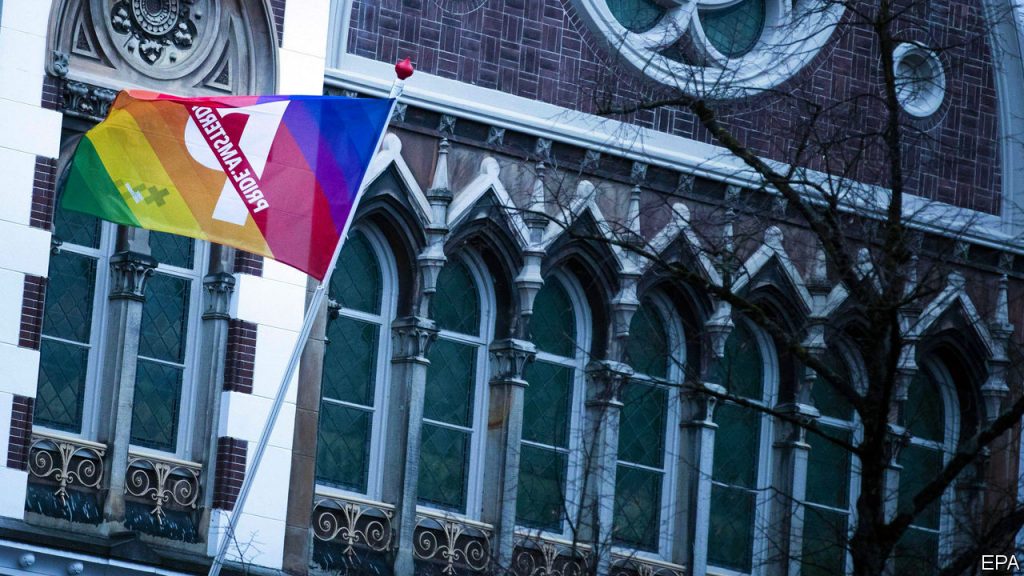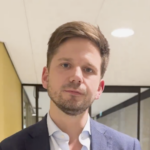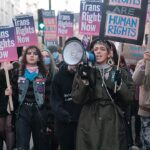Blog Post
The Dutch LGBT lobby targets Christian education
For the second time in two years, controversy has erupted in the Netherlands over issues regarding gender in sexuality. In 2019, the news that a number of Christian leaders had signed the Dutch version of the Nashville Statement affirming their commitment to the biblical definition of human sexuality created a media firestorm and a vitriolic response from LGBT activists and many politicians. Now, the media is reporting (as if this were news) that many religious schools still teach their students about sexuality and relationships through a biblical lens, as well. This time, the backlash appears to be even fiercer.
To get a picture of what is happening in the Netherlands, I reached out to Willem de Potter, the chairman of the Governing Body of several Reformed schools. He was kind enough to provide extensive answers to the questions I sent him on the threat to Christian education in the Netherlands as well as valuable context for non-Dutch readers:
Freedom of conscience
The Dutch have always been free thinkers, liberals and tolerant folks. A great deal of historical evidence proves that in the seventeenth century (the Dutch Golden Age), the Dutch Republic was the only country in which freedom of conscience was enshrined in the law, resulting in the influx of refugees of all possible religious backgrounds. It was a “known paradise” for authors and philosophers who found here in the Netherlands, the opportunity to publish works that would see them be branded heretics and maybe burned at a stake. The teachings of John Calvin and Martin Luther found fertile soil in the Republic at that time.
Freedom of education
In the Netherlands freedom of education has been a constitutional right since the Freedom of Education Act was signed by the government in 1917. Anyone may provide education. Private schools may have a religious or ideological character, unlike publicly run schools. Both may be based on a specific educational ethos. The government provides funding for both privately and publicly run schools, provided they meet certain requirements.
Educators in the Netherlands have been given a lot of freedom to set their own curriculum and even start their own schools. This encourages performance and innovation while still following a set of core objectives laid out by the Dutch government. The Netherlands consequently boasts a broad spectrum of flourishing educational approaches.
Dutch school system
Dutch primary and secondary schools are divided into two categories: regular (openbaar) public schools run by the government; and private (bijzondere) schools that are independently operated and based on a specific religion or educational philosophy. All schools, whether regular or special, receive government funding.
About two-thirds of children in the Netherlands attend private schools. The is a wide variety of different school types, based on:
- Religious schools in the Netherlands are founded on a specific faith such as Reformed Christian, Protestant Christian, Catholic, Ecumenical, Islamic or Jewish. Many of these schools are moderate in their religious perspectives, accepting children with a different religion or no religion at all.
- Educational concepts, like Montessori schools (based on the philosophy of Italian educator Maria Montessori), Free-school (De vrijeschool: Founded on the concepts of the Austrian social reformer Rudolf Steiner), Daltonschool (based on the The Dalton Plan, developed by American teacher Helen Parkhurst), Jenaplan- schools (based on the ideas of German pedagogue Peter Petersen)
- (new) educational trends and ideas, these include Freinet schools, bilingual schools and iPad schools.
Private schools have the right to refuse to admit pupils whose parents do not respect the belief or ideology on which the school’s teaching is based. They are subject to private law and are state-funded although not set up by the state. Guaranteed in the constitution is also the choice of textbooks. Teaching in private schools is based on religious or ideological beliefs. These include for example Catholic, Protestant, Judaism, Muslim, Hindustani and anthroposophist beliefs and views.
The Dutch concept of tolerance
The Dutch concept of tolerance is one that is as old as time. The Dutch tolerance was the foundation for the unique freedom of school-choice for parents. Freedom of Education is a fundamental right in The Netherlands. Tolerance also planted the seeds that would grow over time to become the identity of a nation that would approve of gay marriage, legalisation of soft drugs and prostitution. Lesbian, gay, bisexual, transgender (LGBT) rights in the Netherlands have been some of the most progressive in the world. The Netherlands has become one of the most culturally liberal countries in the world, with recent polls indicating that more than 90% of Dutch people support same-sex marriage. The prohibition of discrimination is also a fundamental right in The Netherlands. In recent years there has been a continuous debate about the tension between fundamental rights (like education and discrimination).
The Netherlands has dozens of Reformed Christian schools which are founded by parents who want their children to be educated in a school with an open Bible. These schools adopt the classic Christian view that sex should be within marriage, and that marriage is the union of one man and one woman. To this the Reformed Christian school would add that here is no place for hatred, hurtful comments, or other forms of rejection toward those who experience same-sex attraction or identify themselves as gay, lesbian or bisexual.
Safe haven for children
The Reformed schools intend to be a safe haven for all kinds of children. The schools try to realise healthy social wellbeing for children. Adolescence is the dawn of sexual attraction. It happens due to the hormonal changes of puberty. These changes involve both the body and the mind — so just thinking about someone attractive can cause physical arousal. These new feelings can be intense, confusing, sometimes even overwhelming. Teens are beginning to discover what it means to be attracted romantically and physically to others. And recognizing one’s sexual orientation is part of that process. By middle school, as they enter adolescence, many gay teens already recognize their sexual orientation, whether or not they have revealed it to anyone else. Those who didn’t realize they were gay at first often say that they always felt different from their peers, but didn’t exactly know why. Becoming aware of — and coming to terms with — one’s sexual orientation can take some time. Thinking sexually about both the same sex and the opposite sex is quite common as teens sort through their emerging sexual feelings. As in every school, there is also room for adolescents to share their feelings with teachers or fellow students. A Biblical view on marriage and a safe haven for children are not incompatible. This is also evident from the fact that these Reformed schools also employ some gay teachers who (due to the Biblical view on marriage) do not have a gay sexual relationship. Schools in the Netherlands may not discriminate but are free to determine their own ‘professional demands’ for teachers.
Most schools in the Netherlands don’t share this Biblical view. Even within the ranks of professing Christians there are those who don’t believe that God’s Word and created order affirm heterosexual marriage as the one and only legitimate context for sexual expression.
Tolerance is decreasing
The view on sexuality of the Reformed Schools is generally known in The Netherlands but the tolerance to tolerate this minority view is decreasing. The issue was highlighted during a debate on citizenship education in Dutch parliament. Part of the debate was about a document in the admission procedure of some schools. Parents were asked to sign a document saying they reject homosexual lifestyles. During the days after the debate it turned out that the document in question had not been used for years. Today only documents are used that express the biblical view of sexuality. But that vision is also under great pressure. Education minister Arie Slob defended the current practice, saying that schools can require parents to state their rejection of homosexuality using freedom of education legislation. At the same time, Slob told MPs, schools are also required to be a safe place for all their pupils. ‘Let there be no misunderstanding,’ he said. ‘Schools are required to ensure the social, psychological and physical safety of all their pupils.’
MPs told the minister, who represents the Christian party ChristenUnie in the cabinet, that the two statements are incompatible. ‘I expect Slob to put an end to this sort of declaration as quickly as possible,’ Socialist MP Peter Kwint, who drew up the motion, said. ‘A school cannot both create safe surroundings for all pupils and require parents to state that they reject homosexuality. You are making the situation unsafe for children both in school and at home.’ VVD (liberals) MPs have also thrown their weight behind the call for change. ‘Schools have to be a safe place for everyone, regardless of origin, religion or sexual orientation,’ said Rudmer Heerema. ‘We cannot allow schools to set conditions.’ The proposal is also supported by D66, PvdA and GroenLinks, but not by any of the three religious parties or the far right PVV and FvD. Research by current affairs programme Pointer earlier this year showed that one in five ‘strictly Protestant’ schools consider homosexuality to be morally unacceptable. In total, 34 out of 170 had a document online making their position clear.
The key question SEEMS: are the two statements (Biblical marriage view & safe environment for children) incompatible? A lot of the Dutch MPs say no. Reformed Christian school and at least the Reformed Political Party (SGP) say Yes because in practise the Reformed schools are not refusing gay teachers nor refusing (homosexual-oriented) pupils. The school do refuse practising gay teachers on the grounds that practising homosexuality conflicts with their religious principles. There is enough space for pupils to express their feelings or troubles and talk about it. The guidance of students is well developed in Reformed schools, the topic of sexual orientation is not excluded from it.
But the key question IS: is it allowed to teach children about religion in Dutch schools who are funded by the government and ran independently. Not only the freedom of Education is at stake but also the freedom of religion. The background of the fierce debate in The Netherlands is about religion in government-sponsored schools. Some Dutch MPs voice concern that conservative Christians are trying to impose ‘their’ values on students. But the students attending Reformed schools have been raised by their parents with the same values. Not ‘their’ values, but Biblical values. Only 1% of the wide variety of schools in the Netherlands are Reformed. Fueled by the strong gay lobby in The Netherlands, the focus has been on this small group of these Reformed Christian schools for many years. There have been no major changes in the regulations so far. That now seems to be changing in coming years so that schools at least have to accept all pupils and maybe are forced to cancel the using of any documents with their biblical view about sexuality. God forbid.









‘The background of the fierce debate in The Netherlands is about religion in government-sponsored schools.’This is an incorrect statement because all parents who send their children to a Christian school are tax payers as well. So sponsered by the parents themselves. Please tell the truth